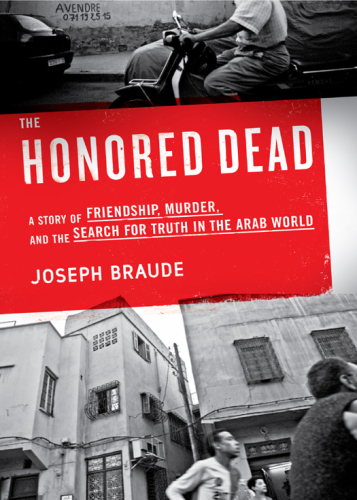
The Honored Dead
A Story of Friendship, Murder, and the Search for Truth in the Arab World
کتاب های مرتبط
- اطلاعات
- نقد و بررسی
- دیدگاه کاربران
نقد و بررسی

April 11, 2011
Journalist Braude (The New Iraq), an American of Iraqi Jewish origin, spent four months in Morocco embedded with a police precinct in Casablanca whose detectives infiltrate drug cartels, break up al-Qaeda cells, and pursue a variety of more routine criminals. Befriending an unemployed Muslim Berber named Muhammad Bari, the author investigates the brutal murder of Bari's best friendâa rural migrant killed in the warehouse where he spent his nights. Following the case with Bariâand suspecting the police of duplicity âBraude begins an investigation that takes him through the gamut of Moroccan society: Berber farming communities; wealthy, cosmopolitan Jewish neighborhoods; tin-roofed shantytowns; drab housing projects; bustling cafés, mosques and synagogues. A scholarly and perceptive observer, Braude intersperses the cloak-and-dagger narrative of the murder mystery with digressions on Morocco's history, geopolitics, and culture; the country's rich Jewish heritage; the role that magic, sorcery, and dream interpretation play in Moroccan society. This lyrical and engrossing book puts a human face on this "moderate, constructive player" in the politics of the Middle East, giving readers a firsthand glimpse of its glittering religious, intellectual, cultural historyâand its future.

Starred review from May 1, 2011
An improbable pursuit of a strange murder in Casablanca segues into a moving study of cross-cultural friendship.
Journalist Braude (The New Iraq, 2003) procured an "embed-style access" to a police precinct in Casablanca to observe the interaction between an authoritarian state and its people—or, "how a government and its people conspire to become a society." The Judiciary Police, an FBI-like agency, were extraordinarily open to the author's observations and questions, proud of their low crime rate compared to the United States, although bedeviled by a pesky sect of Islamist militants. Braude was tolerated largely because of his rare background: An American born to an Iraqi Jewish mother, he speaks Arabic fluently (also Hebrew) with an Iraqi accent thanks to a close youthful friendship with an Iraqi called Ali, from whom he had become estranged due to an unfortunate run-in with the federal police some years before. (Braude, who worked for five years with the FBI on Islamist terrorist cases, gradually reveals the sad, incredible story.) The particular murder that fascinated the author during this period involved a 41-year-old homeless Berber man, Ibrahim Dey, who was beaten to death in a warehouse where he had been sleeping for five years—ostensibly for theft. Dey was well liked and considered a majdub, or someone who brings fortune to others, and his best friend, Muhammad Bari, whom Braude befriended, swore to vindicate the suspicious murder. Like a good murder mystery, the plot thickens as details flesh out, including the activities in the precinct, the family of the victim, the history of Berber and Jewish oppression in the Arab world, the ideological struggle over Islam and the close friendship once enjoyed between Dey and Bari, which reminded the author of his own with Ali. Moreover, the book is infused with the author's sense of loss and tenderness for his mother's native land and language, rendering this one of the most affecting, sympathetic accounts of Arab culture in recent memory.
Despite the murky title, this is a beautifully composed, deeply felt journey inside Morocco.
(COPYRIGHT (2011) KIRKUS REVIEWS/NIELSEN BUSINESS MEDIA, INC. ALL RIGHTS RESERVED.)

























دیدگاه کاربران